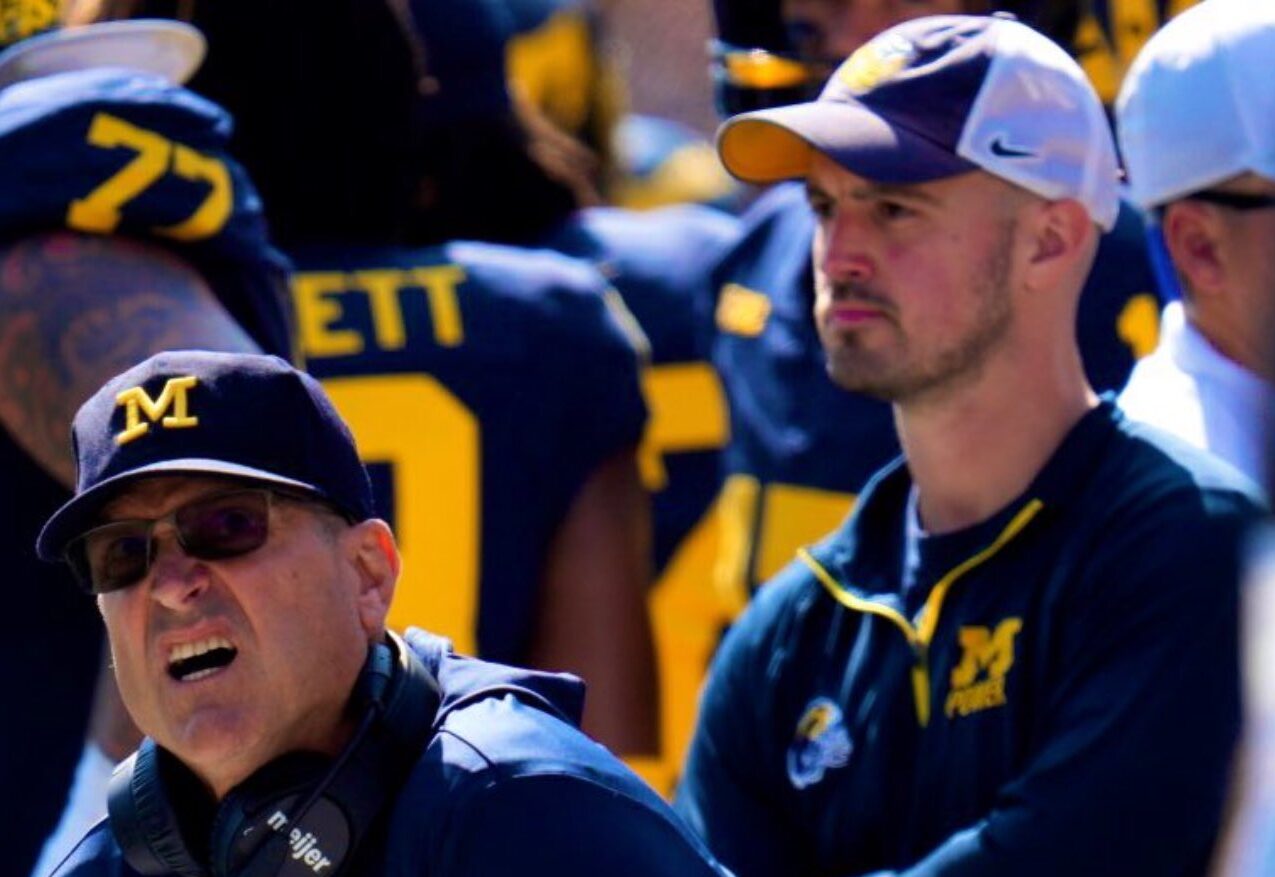
As an Ohio State fan, I almost spit out my coffee when I heard the “news” this morning. The NCAA had finally come down hard on Michigan for its infamous sign-stealing scheme, and boy, did they swing the hammer.
According to the imaginary justice system inside my scarlet-and-gray brain, the Wolverines were stripped of every win from 2021, 2022, and 2023. Their 2023 national championship trophy? Melted down and re-forged into a commemorative plaque that reads, “Cheaters Never Prosper.” Michigan also got slapped with a three-year bowl ban, and perhaps best of all, Jim Harbaugh, Connor Stalions, and Sherrone Moore were each handed lifetime bans from college football.
That, my friends, is how justice should have looked.

But here’s the reality: that’s not what the NCAA did at all.
Instead of stripping wins, trophies, and reputations, the NCAA ruled that vacating victories wasn’t even on the table. Norman Bay, the chief hearing officer for Michigan’s case, explained that such penalties only apply when a team uses ineligible players. Never mind the fact that Michigan ran an elaborate spy ring called the “KGB,” with 56 confirmed instances of illegal in-person scouting, or that Stalions passed out tickets like candy so accomplices could record opposing sidelines. Never mind that Jim Harbaugh flat-out refused to cooperate, ducking interviews and withholding key documents. Because no players were ruled ineligible, the Wolverines’ record books remain untouched.
Kay Norton, chair of the infractions committee, doubled down by saying there was “insufficient evidence” that Michigan’s cheating actually impacted the outcome of games. Let that sink in. The NCAA had “overwhelming evidence” of an impermissible scheme—spreadsheets, tickets, phone calls, and video—but somehow not enough evidence to connect the dots that decoding signals provided an advantage. By that logic, Connor Stalions was running the world’s most expensive scrapbooking club.

So what punishment did Michigan get? A fine that could cost them up to $35 million, plus a one-game suspension for its head coach. That’s it. No vacated wins. No postseason ban. No permanent stain on the program’s official legacy. Just a financial slap on the wrist and a stern lecture about compliance culture.
For Ohio State fans, it feels like watching the villain in a movie finally get cornered, only for the judge to say, “Well, he probably didn’t mean it, so let’s just fine him and call it a day.” The Wolverines may have been exposed for orchestrating one of the most elaborate cheating scandals in college football history, but the NCAA treated it like a parking ticket.
Michigan keeps its wins, keeps its championship, and keeps pretending that scouting the other team’s plays in advance had nothing to do with three years of dominance. And Buckeye Nation is left shaking its collective head, muttering the same thing it’s been saying since this scandal broke: if the roles were reversed, you know Ohio State would already be buried under the jail.











